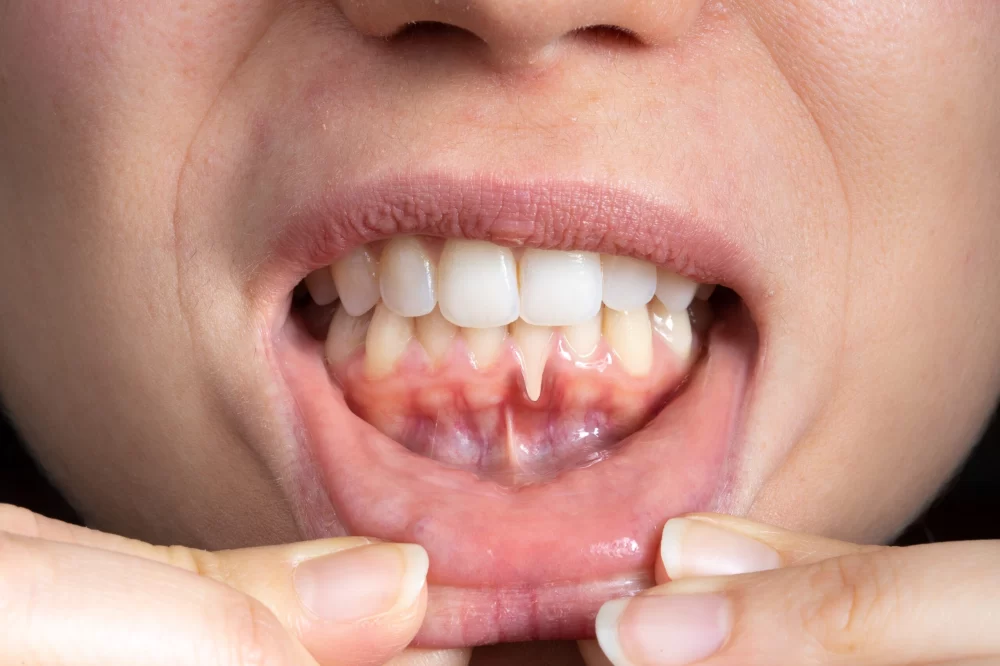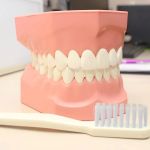
- understanding-gum-recession
- causes-of-receding-gums
- daily-care-to-prevent-gum-recession
- real-patient-experience-and-outcomes
- professional-guidance-for-healthier-gums
1. Understanding Gum Recession
Gum recession occurs when the gum tissue that surrounds the teeth pulls back, exposing more of the tooth or even the root. This condition can lead to sensitivity, decay, and even tooth loss if left unaddressed. The importance of learning how to prevent receding gums with proper care cannot be overstated—early intervention is key.
Many people don’t notice the signs until the recession has progressed. Look for red, swollen gums, longer-looking teeth, or increased sensitivity. If any of these sound familiar, it's time to rethink your oral hygiene routine.
2. Causes of Receding Gums
2.1 Brushing Too Hard
Surprisingly, being too enthusiastic with your toothbrush can do more harm than good. Using a hard-bristled brush or scrubbing too forcefully can wear down your gum tissue over time, leading to recession. Opt for a soft-bristle toothbrush and gentle, circular motions instead.
2.2 Poor Oral Hygiene
Neglecting regular brushing and flossing allows plaque to build up along the gumline. This can lead to gum inflammation (gingivitis), which is the first stage of gum disease and a major contributor to recession. Good oral hygiene is your first line of defense.
2.3 Genetic Factors and Medical Conditions
Some individuals are more prone to gum issues due to their genetic makeup. Additionally, conditions such as diabetes or hormonal changes can make gums more susceptible to damage. While you can't change your genes, you can manage your risk with proper care and regular dental visits.
3. Daily Care to Prevent Gum Recession
3.1 Adopt the Right Brushing Technique
The way you brush matters. Position your toothbrush at a 45-degree angle to the gums and use short, gentle strokes. Brushing twice a day for two minutes, combined with daily flossing, helps remove debris and plaque without damaging your gums.
3.2 Use Antibacterial Mouthwash
An alcohol-free antibacterial mouthwash can reduce inflammation and help prevent the bacteria that contribute to gum recession. Rinsing after meals also helps flush away food particles that brushing might miss.
3.3 Stay Hydrated and Maintain a Healthy Diet
Drinking plenty of water stimulates saliva production, which naturally protects your teeth and gums. Incorporate crunchy vegetables, leafy greens, and vitamin C-rich foods into your meals to strengthen gum tissue and reduce inflammation.
3.4 Wear a Night Guard if You Grind Teeth
Bruxism (teeth grinding), especially at night, can put excessive pressure on your gums. A custom night guard from your dentist can prevent this and protect your gumline from recession caused by constant tension.
4. Real Patient Experience and Outcomes
Meet Jason, a 42-year-old graphic designer who visited Dentistry Toothtruth with noticeable gum recession on his front teeth. He brushed diligently but used a stiff-bristle brush and never flossed. After a personalized consultation, we switched him to a softer brush, taught him the correct technique, and added daily flossing and mouthwash to his routine.
Within six months, Jason's gum health dramatically improved—his gums became firmer, inflammation reduced, and no further recession occurred. His case demonstrates how proper care, not just frequent brushing, is vital in learning how to prevent receding gums.
5. Professional Guidance for Healthier Gums
Regular dental visits are essential to preventing gum recession. Professional cleanings remove tartar buildup that brushing can’t, and your dentist can catch early signs of gum issues before they become serious. At Dentistry Toothtruth, we offer comprehensive gum health evaluations and personalized care plans designed to fit your unique needs.
If you’re concerned about your gum health or want to ensure you’re taking the right preventive steps, our expert team is here to help. Whether it’s choosing the right oral care products or treating early signs of recession, we’ll guide you every step of the way.
Healthy gums are the foundation of a healthy smile. Start protecting yours today with the right knowledge, habits, and support. Visit us at Dentistry Toothtruth for expert advice and services tailored to your dental health goals.







 Queens Dental Group4.0 (114 review)
Queens Dental Group4.0 (114 review) Parlor Dental5.0 (27 review)
Parlor Dental5.0 (27 review) Watson Family Dentistry3.0 (6 review)
Watson Family Dentistry3.0 (6 review) Adelante Healthcare3.0 (831 review)
Adelante Healthcare3.0 (831 review) Polaris Dental Care4.0 (170 review)
Polaris Dental Care4.0 (170 review) Dentistry At Suburban Square: Michael I. Wollock, DMD4.0 (1228 review)
Dentistry At Suburban Square: Michael I. Wollock, DMD4.0 (1228 review) The Importance of Oral Health Education During Pregnancy for a Healthy Pregnancy
The Importance of Oral Health Education During Pregnancy for a Healthy Pregnancy Best Tips for Brushing Your Teeth Properly for Healthy Gums: Essential Techniques for Oral Health
Best Tips for Brushing Your Teeth Properly for Healthy Gums: Essential Techniques for Oral Health Why Skipping Dental Checkups Can Lead to Bigger Oral Health Problems
Why Skipping Dental Checkups Can Lead to Bigger Oral Health Problems Advantages of Porcelain Dental Restorations
Advantages of Porcelain Dental Restorations How Can Diabetes Cause Tooth and Gum Problems? Preventing and Managing Oral Health Issues
How Can Diabetes Cause Tooth and Gum Problems? Preventing and Managing Oral Health Issues Healthy Habits for Promoting Good Oral Health and Hygiene: Tips for a Healthy Smile
Healthy Habits for Promoting Good Oral Health and Hygiene: Tips for a Healthy Smile